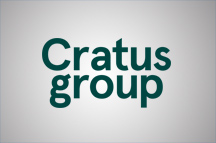For local government wonks like me, Christmas came again in February when we got some tantalising details on Labour’s plan to sweep away existing local government structures in large parts of the country. Once these areas have elected Mayors next year, a staggering 80% of England will be covered by devolution.
With so much happening, we at Cratus Group will be turning these complex machinations into a more digestible, insightful and occasionally entertaining newsletter over the next few months – the Devolution Diaries. Each week, we will bring you new angles and information on devolution and what it means for the development sector.
For our first despatch, a bit of scene setting is in order.
As we expected, only around half of the areas which applied to join the government’s Devolution Priority Programme were successful and therefore had their May elections delayed by one year.
Politically this delay is significant, as these areas could otherwise have expected significant political change in May with polls dramatically different to when County Councils last went to the polls in 2021. There are two political parties who were optimistic about making gains in these areas – the Liberal Democrats and the Reform Party – both of whom aren’t so keen on the delay.
The counties which will still go to the polls on 1 May are still predominantly Conservative-held, but areas the Lib Dems had been talking up such as Sussex, Surrey and even Hampshire, have had their elections delayed. This leaves some battlegrounds between Reform and the Conservatives, which could emerge as the key theme from the election. We’ll be in touch with more detail on that in a later edition.
Aside from the election delays, the prospect of electing new Mayors very soon has been cause for much excitement and some frantic planning in County and Town Halls. The government expects the rollout to be swift, with only really 2025 to get ready for these new regional politicians and their new Strategic Authorities (effectively Combined Authorities).
The Mayors will be an avenue for new funding, and for powers that have previously been the preserve of Whitehall. We can expect to see some Mayors move fast to show the might of their new office, with some flashy local changes like replicating Manchester’s publicly-operated transport system. The race will be on to justify these new roles to the public and establish a regional profile quickly, as Andy Street did in Birmingham.
The prospect of local government reorganisation and the rapid timeline for abolition of district and county councils has not been as well-received. Proposals for their successor authorities are being worked up to a tight schedule, leaving little time for local authorities to put together their evidence and work out the boundaries that work best for their area.
The reorganisation element of these plans has also thrown up some of the biggest questions for government, such as what happens to council debt, which is up to £2bn in some authorities. Their neighbours argue it is not fair for them to pick up the tab, but the Treasury has refused debt relief.
For us in the planning sector, a huge question is what may happen to local plans as today’s planning authorities are abolished and merged. More on that in a future issue, and you can get in touch to talk about precedent cases.
The challenges in the year ahead for devolution and local government reorganisation are huge, but we’ll be here to help you navigate it all, including those valuable opportunities along the way. Make sure to subscribe and share with your colleagues so we can help you understand the new model of local government we’ll have in the coming years.












